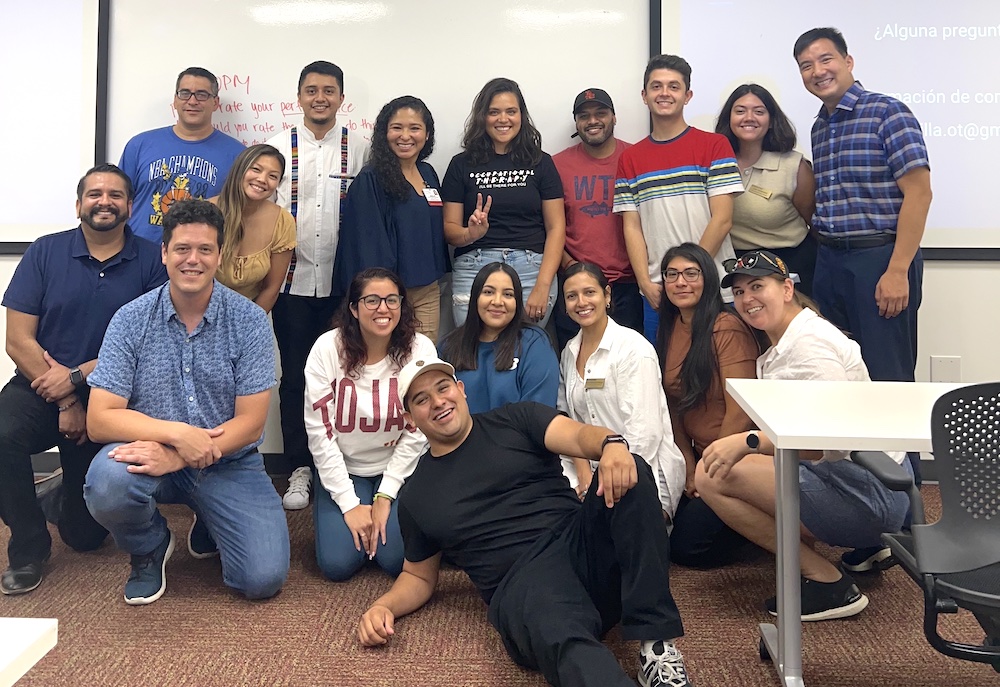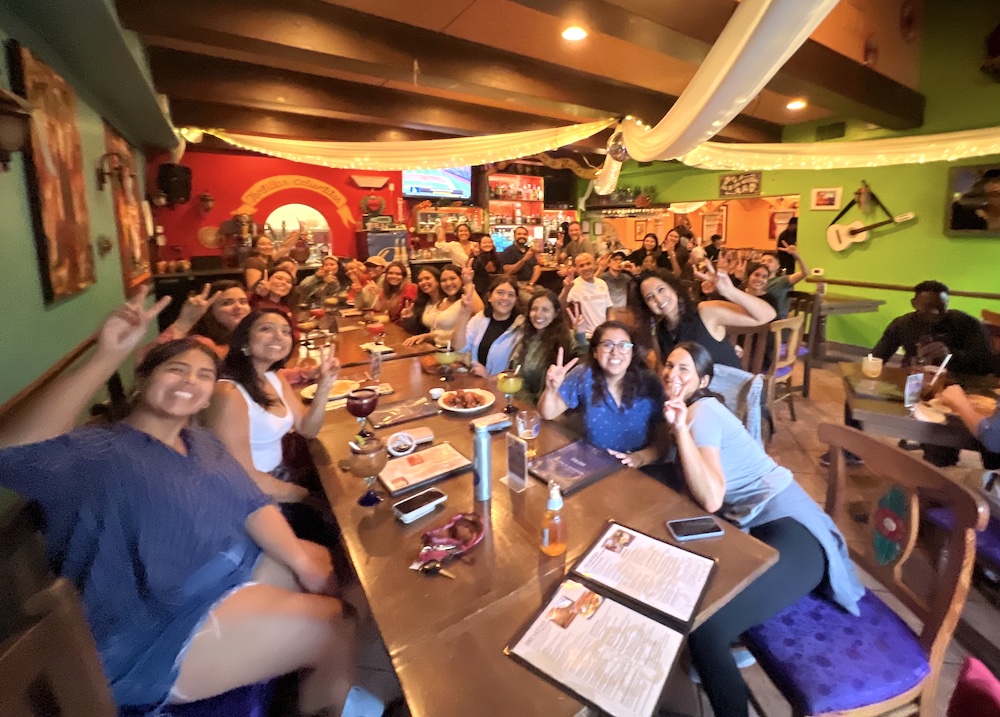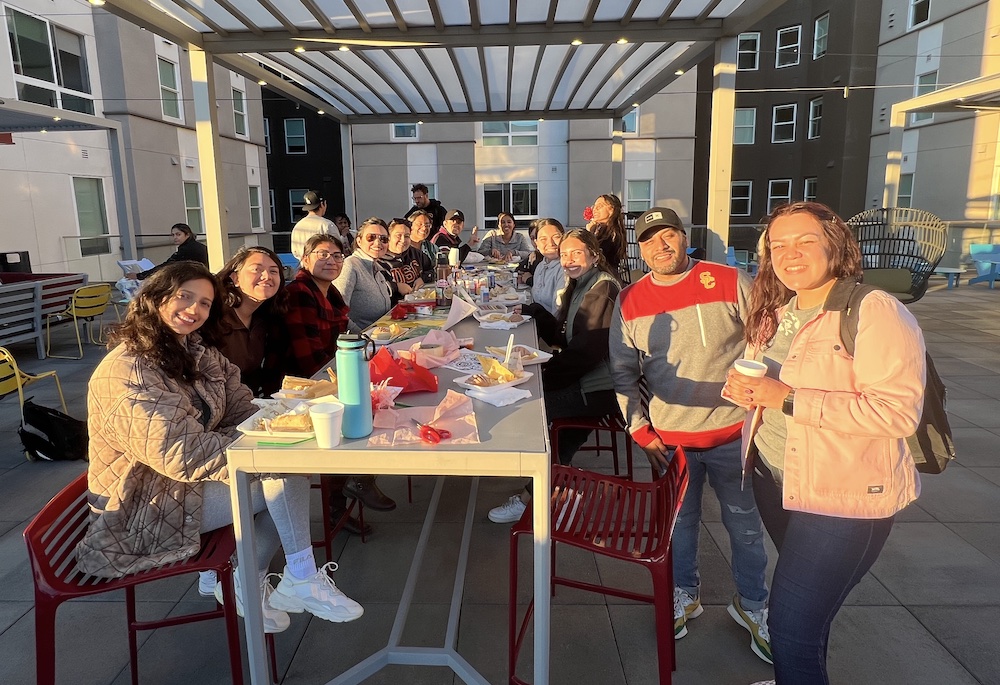Student Blog
First-Gen
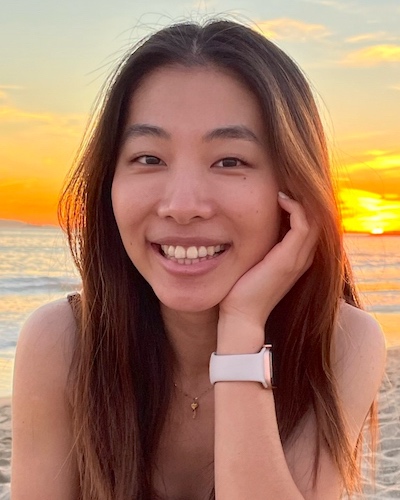
23 Truths for 2023 ⟩
January 18, 2023, by Yoojin
Community First-Gen School/Life Balance
Happy New Year Chan! I compiled some of my favorite quotes. There’s a good mix of bookmarked lines from cherished books, reminders for when life is a little rough, and encouragements to live a compassionate and sacrificial life.
- “To me, there was magic in learning.” — Michelle Obama, Becoming
- “Occupational therapy is more than a job. For many it is a calling. We felt drawn to it.” — Amy Lamb, OTD, OTR/L, FAOTA
- “Do what is good. Advocate for what is right. And fight for what is important.” — Bryan Morales
- “Injustice anywhere is a threat to justice everywhere.” — Martin Luther King, Jr.
- “There is hope, even when your brain tells you there isn’t.” — John Green, Turtles All the Way Down
- “It always seems impossible until it is done.” — Nelson Mandela
- “I wasn’t going to let one person’s opinion dislodge everything I thought I knew about myself.” — Michelle Obama, Becoming
- “We don’t do all our growing up between birth and adolescence or even our twenties. If we’re fortunate, we never stop.” — Diane Guerrero, In the Country We Love: My Family Divided
- “The presence of anxiety is unavoidable, but the prison of anxiety is optional.” — Max Lucado, Anxious for Nothing: Finding Calm in a Chaotic World
- “Unexpected kindness is the most powerful, least costly, and most underrated agent of human change.” — Bob Kerrey
- “Be kind, for everyone you meet is fighting a harder battle.” — Plato
- “We often suffer, but we are never crushed. Even when we don’t know what to do, we never give up.” — 2 Corinthians 4:8
- “An education is not so much about making a living as making a person.” — Tara Westover, Educated
- “Why can’t I just eat my waffle?” — Barack Obama
- “Listening to an underserved population is how you begin to understand them and serve them better.” — Constance Wu
- “Friends love through all kinds of weather, and families stick together in all kinds of trouble.” — Proverbs 17:17
- “Being yourself is all it takes. If you want to impress someone don’t be someone else just be yourself.” — Selena Gomez
- “Living without passion is like being dead.” — Jungkook
- “Rest and self-care are so important. When you take time to replenish your spirit, it allows you to serve others from the overflow. You cannot serve from an empty vessel.” — Eleanor Brownn
- “Family is the most important thing in the world.” — Princess Diana
- “It was possible, I knew, to live on two planes at once — to have one’s feet planted in reality but pointed in the direction of progress.” — Michelle Obama, Becoming
- “Fall seven times, get up eight.” — Naoki Higashida
- “Leadership and learning are indispensable to each other.” — John F. Kennedy
⋯
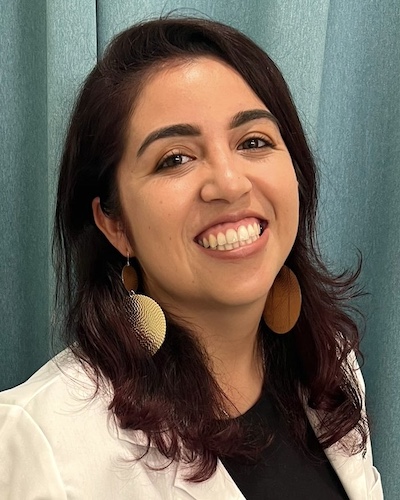
New Year, New Me? ⟩
January 17, 2023, by Tania
Classes Community Diversity First-Gen School/Life Balance
Starting a new year can feel weird at times because there is this weird societal pressure of being the best new version of yourself. However, if you ask me, I am already a different person from 5 months ago. In fact, each day we evolve. At times, we sit reminiscing on the things we didn’t accomplish the years before. Our minds go on and on about the should haves and could haves but we don’t have control over those anymore.
Maybe this year is not about reinventing or being the newest best version of yourself but instead about being patient, caring, and loving to the person you are right now. I invite you to instead or in conjunction with writing new year’s resolutions, take the time to celebrate ALL your accomplishments (big and small) and appreciate your life’s journey. This year block the outside noise!
This is because as first-generation, low-income, Latinx students we usually carry the weight of our families. We are forced to create our paths, we navigate unknown territories and we receive plenty of no’s along the way. Being the first in the family to do something different requires many “mistakes” that later turn into lessons for those that come after us. However, the beauty of being a first-generation, low-income, Latinx student is that we don’t take NO for an answer. It may take us longer, it may take us a few tears, and it may take us finding different ways to get there, but we are determined to accomplish what our heads and hearts set themselves to do because our families already sacrifice too much. We know how it was before so the only direction is forward. In my case, little Tania didn’t wake up every day at 3 am to commute across the US-Mexico border for 10 years for today’s Tania to give up now.
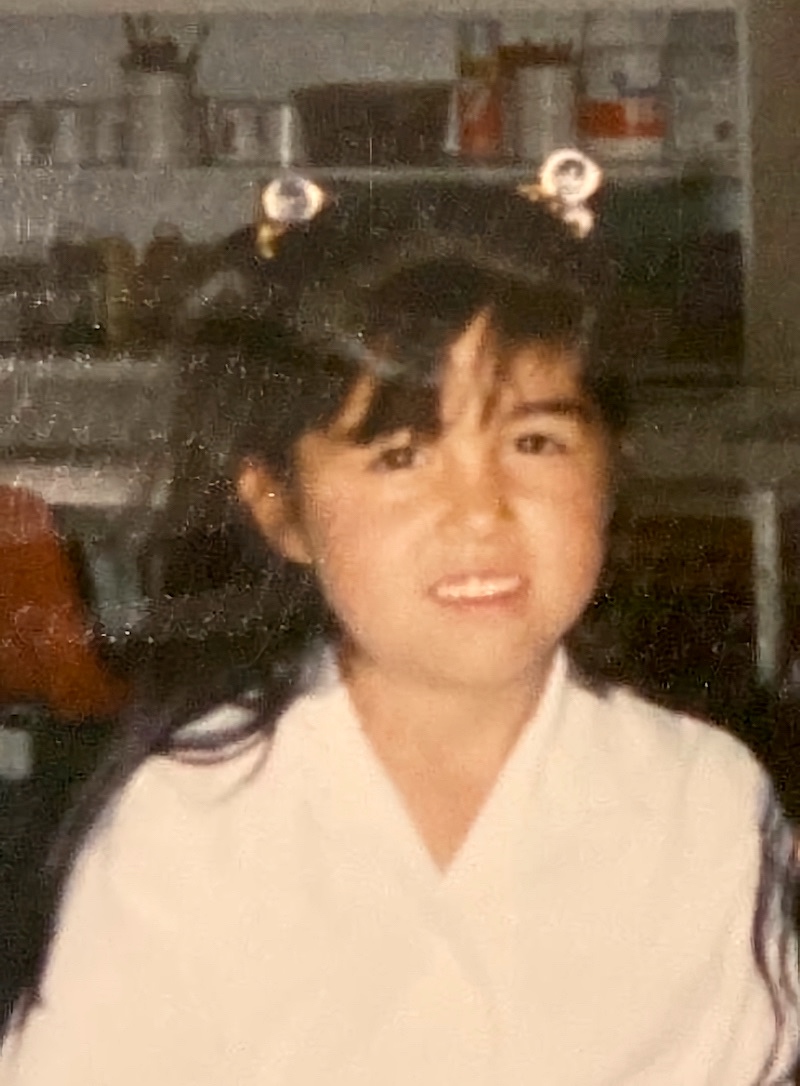
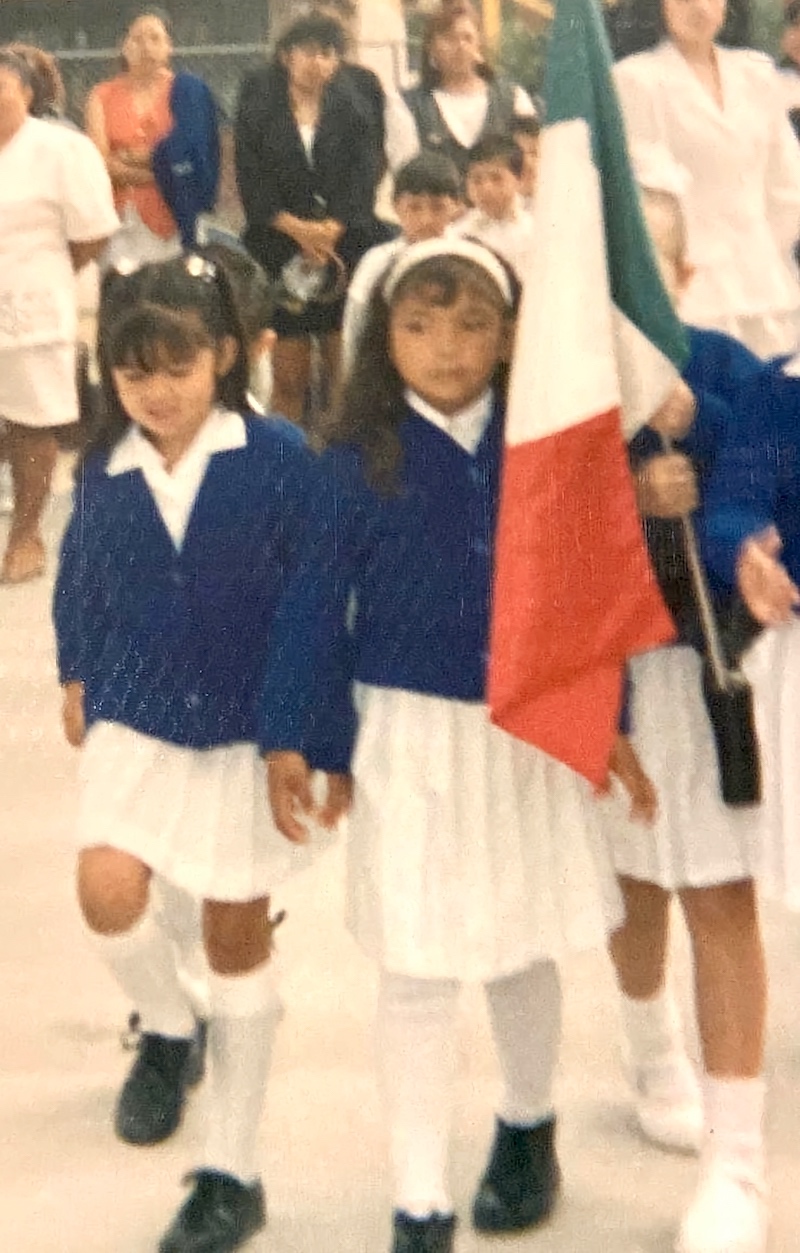
Little me would be so proud to see what was once a dream is now a reality. Present day Tania is working towards becoming a doctor in occupational therapy and accepted a paid residency at Children’s Hospital Los Angeles: University Center for Excellence in Developmental Disabilities (UCEDD)!
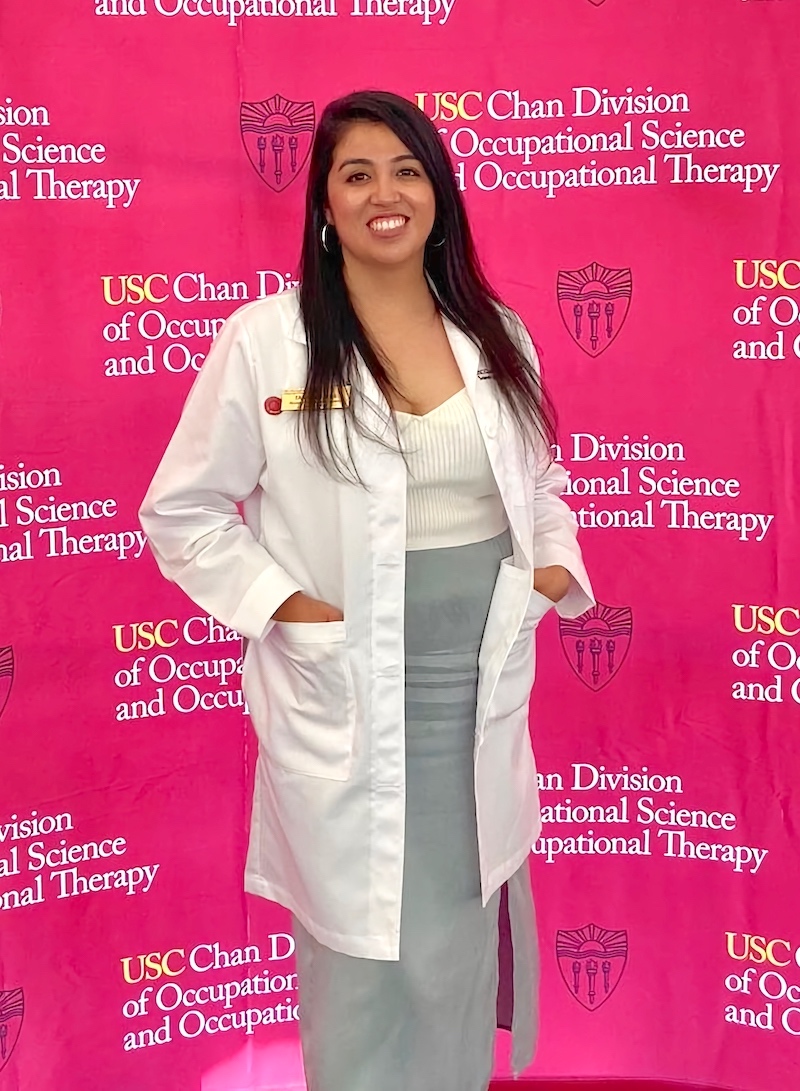
This 2023 there is no newest best version of me and there is no need for the newest best version of yourself either. So as hard as it can be, appreciate the now and be patient with who you are because past you once dreamed of who and where you are today. I’m sure little you is proud of how far you have come and your validation is the one that matters!
⋯

Latinx Heritage Month Celebration ⟩
November 29, 2022, by Tania
Community Diversity First-Gen Getting Involved
Asociación Hispanohablante de Terapia Ocupacional (AHTO) is a student organization in the Chan Division, with the goals to improve the educational experience of Latinx students and to provide care/resources to the Spanish-speaking community. We are a group of aspiring OTs passionate about working with underrepresented and underserved communities. AHTO hopes to support the retention of students of color within the division and to advocate for the needs that our community requires. AHTO is a student organization made by the students and for the students.
We all know the importance of representation in higher education and healthcare. Therefore, the AHTO board worked together to create several events in celebration of Latinx Heritage Month.
The first event was café con pan dulce, which allowed students to connect over some cafesito and conchitas. That same day during lunch students gathered to play Loteria, which is similar to Bingo.

The next event was Case Studies en Español, and this event was made possible with the collaboration of Dr. Celso Delgado Jr.. Our two presenters, Dr. Marilyn Thompson and Dr. Daniel Padilla reviewed two different case studies in Spanish and provided tips on how to best serve the Spanish-speaking community.
We also had a social at a local Latinx-owned restaurant, Casa Fina Restaurant, to support businesses in the community. We enjoyed good food, good music, and great company. We had over 30 people at the event. It was beautiful to see so many people in one room building community.
We closed the celebration with Dia de Los Muertos. Students enjoyed tamales, pan dulce, and crafts.
AHTO hopes to create a safe space and a home away from home for those in the division. We understand that there have been other Latinx organizations before us that maybe have not lasted, but the fact that an organization keeps arising time by time lets us know the need for support in the division and the willingness of our community.
If you are a student and you are interested in getting involved, stay on the lookout for elections next semester!
If you are staff / faculty and wonder how you can best support our student group here are a few ways:
- Attend our events
- Promote our events
- Advocate for funding for student orgs
- Ask us what we need
Special thanks to Dr. Celso Delgado Jr. and Dr. Danny Park for their collaboration and support!
⋯

From Enemies to Friends . . . to Lovers: My Occupational Therapy Journey! ⟩
September 22, 2022, by Yoojin
Admissions First-Gen What are OS/OT?
(Spoiler: they fall in love at the end!)
When I tell folks that I’ve known about OT since before I even knew how to spell the words, they tell me how lucky I am to have discovered my passion at a very young age, especially in such a niche profession.
And don’t get me wrong, they’re totally right! I see how there is a perfect plan for me, part of which is to attend OT school to become an occupational therapist. However, like most people outside of the healthcare community who know what OT are: there’s a good chance it’s because they or a loved one have experience with receiving therapy services.
My love story with OT starts like this: OT wasn’t always a great passion of mine. In fact, at one point in my life I despised it so much I didn’t want to go into the healthcare field at all! (Here’s some context about me now: those around me can attest that OT is one of my favorite things to blabber about. In fact, someone I met recently asked, “So, is OT just like, your thing, Yoojin?” after I spent a good chunk of our conversation talking about my first Level II fieldwork this past summer. Well, maybe I should’ve dialed it down . . . he was a physical therapist after all 🤔).
Similar to a relationship between a pair of friends or lovers, it’s hard to remember the rockier parts of my relationship with OT because it’s at such a healthy state right now. But as I look back on my journey of grace, forgiveness, and love in my relationship with OT, I know it’s one that I really want to share. So here it goes . . .
I wouldn’t exactly say that I “discovered” OT, because that would imply that I was in search of something of the sort. Hm. So would it be more like I was “inescapably, involuntarily compelled into learning about OT”? That makes it sound like someone committed a crime against me. Well, that’s exactly how I felt throughout my childhood as a family member of someone who’s receiving OT services. I was too young to stay home alone, so I was forced to tag along. To almost every. Single. Appointment.
This meant I missed out on playdates and hanging out on the playground after class, both foolish, yet simple pleasures for a little selfish, elementary-aged Yoojin. But, I mean, why was I forced to play the third parent and the unpaid translator (shoutout to us first-gen children of immigrants!) rather than play tag or house? I cringe now at my shallow desires, but my years of frustration from holding such roles grew into a seed of bitterness in my heart toward OT and the clinic, the place where my childish dreams laid to rest. As much as I knew how much it strained my parents to be caregivers and parents, I pushed them away and continued to wallow in my self-pity.
It wasn’t until years later when it came to applying for college when things finally started to shift, and I took several weeks to reflect on what I really wanted to do. After countless talks with my mentors, late nights thinking, and tears spilled over wondering if I was destined to do nothing, I realized that OT was the only profession that I’d spent hundreds of hours observing and knew for a fact what I’d be getting myself into: a selfless, fulfilling, individual-oriented profession that works to improve the lives of clients by helping them achieve their personal goals.
During this time, my family and I exchanged so much grace and forgiveness. I fell more in love with OT as I rediscovered it on my own terms. Since applying and getting into the BS-MA (now the BS-OTD) program right here at USC, I’ve grown so much appreciation and love for this profession and never looked back. Love truly does conquer all! In my case, I was able to loosen my hardened heart filled with misplaced hatred for OT and foster it into a deepened empathy for my future clients’ needs. Give me all those cheesy pins and notepads that say “I ❤️ OT,” because I really, really do!
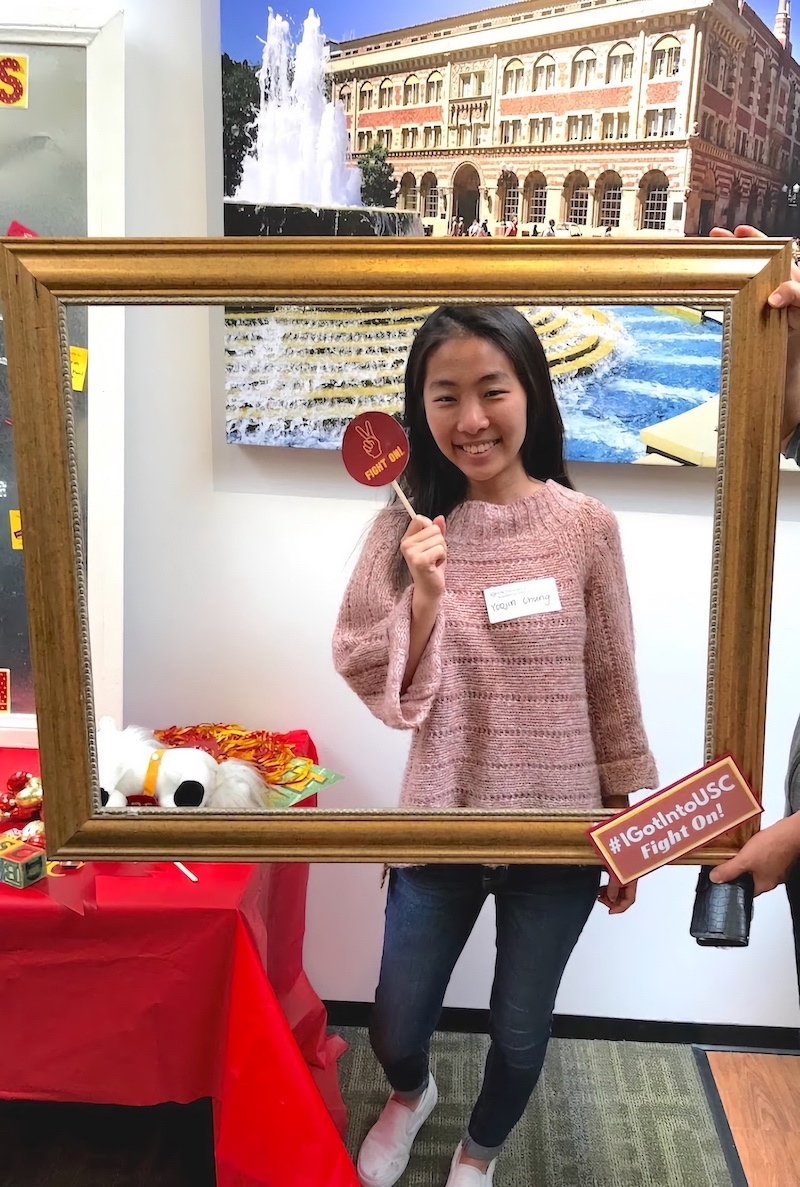
Me, over-the-world at the Admitted Student Reception in 2018!
⋯

My road to OT and its many detours ⟩
September 15, 2022, by Tania
Admissions Diversity First-Gen School/Life Balance
Growing up, education was always seen as a privilege. I knew I needed to do something with my life but never knew exactly what that could be.
So, I decided to fully explore everything I was ever interested in because what better way to spend my 20s? I tried EMT, but the gender dynamics and the low pay made me run away quickly. I tried CNA in an attempt to be an RN, but the burnout is real. I moved to an oncology lab, but the hyper fixation of looking at cells didn’t last too long. My all-time favorite was working at a morgue performing autopsies, but to my surprise, I do enjoy working with people who are alive. Then I decided to be an internship and career advisor but reading resumes and talking to different corporations entail long working hours. I also created a small business decorating sugar cookies, but I had to pause because the repetitive movements of piping exacerbated my carpal tunnel pain. Finally, I was a university counselor and while I enjoyed helping students navigate higher education, something was missing. I loved all my previous jobs but none of them fully cover what I was looking for. I thought to myself if only there was one career that could allow me to be in health care, allow me to be creative, and allow me to teach . . .
It wasn’t until my grandfather had hip replacement surgery that I learned about OT. As his medical director, I approved an occupational therapist to come over for a home visit. The OT came over and guess what was the first thing she pointed out during the inspection? If you thought RUG, then you are correct! The rug in the living room was a tripping hazard. As she inspected the home, I took the opportunity to have a conversation with her about her job. I remember her saying “think of OT as a combination between a doctor and a teacher.” My brain immediately lit up! Oh, what! my two favorite professions in one? She had very convincing arguments regarding having a profession in OT because well here I am today. I am so glad for my journey because finding what you love and loving what you do is amazing.
I know the pressure of needing to figure life out, especially as a first-generation student, but I am here to tell you that taking a break in between undergrad and graduate school is fine, changing careers is fine, not getting all A’s in school is fine, and not knowing what specific area of OT you want to work in is fine! Don’t place extra stress on yourself thinking that you must figure every single detail out. I’ll let you in on a secret, no one has everything figured out in life, some are just better at pretending!
First-year students, you will have the next few years to decide what you would like to focus on and second-year students you will have your career to figure that out. Give yourself grace because being in grad school at USC is already stressful enough.
⋯






